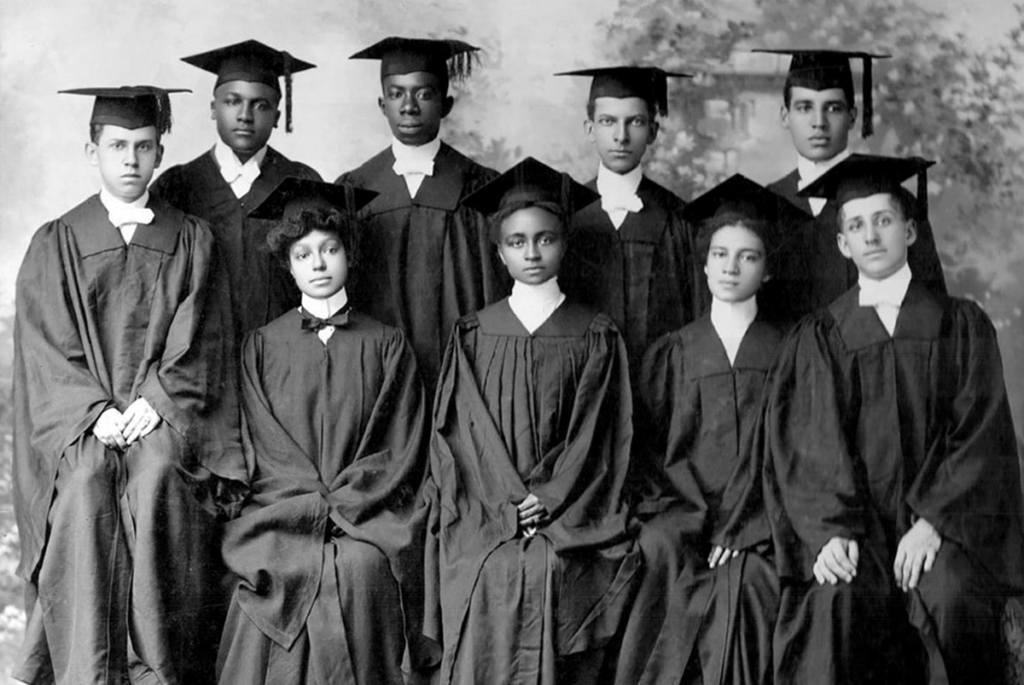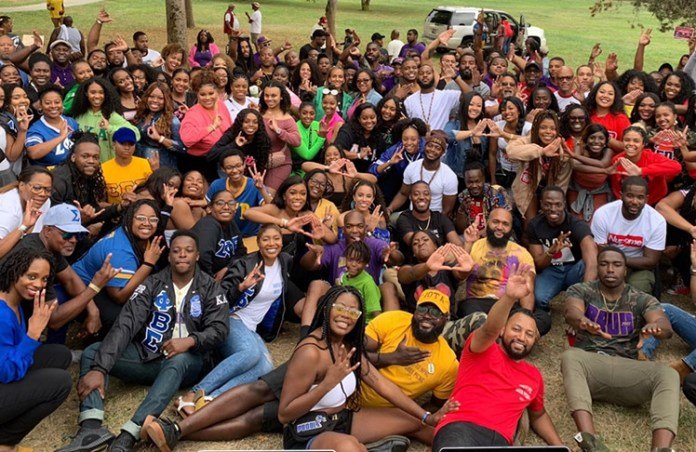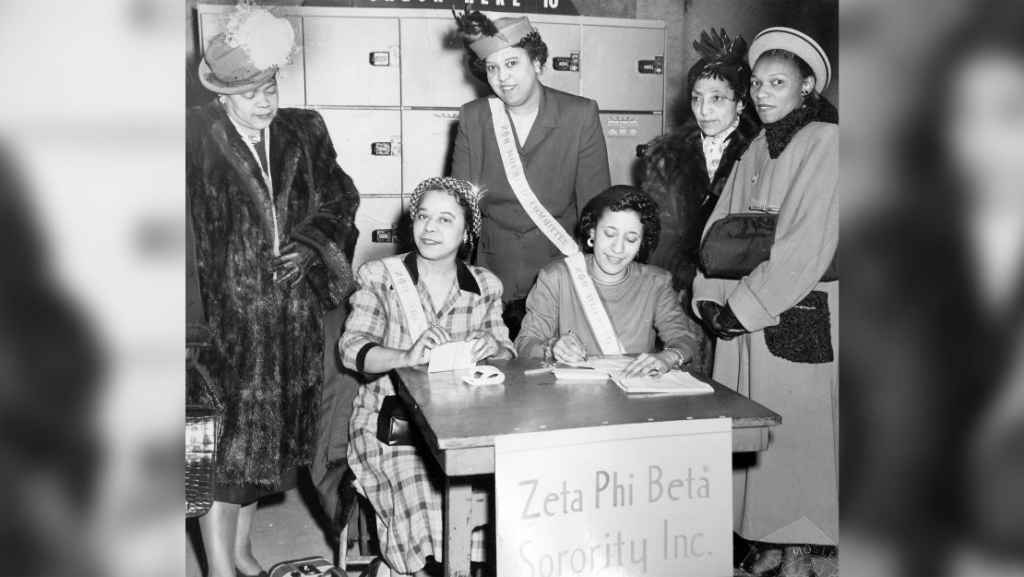“Why Negativity Towards HBCUs and BGLO’s Threatens Their Heritage and Impact”
The discussion of historically black colleges and universities (HBCUs), and Black Greek Letter Organizations (BGLOs) often elicits strong opinions from people, particularly from those who feel disenfranchised or rejected by these institutions.
However, harboring resentment or misunderstanding toward these entities can lead to a disregard of their significance in the preservation and advancement of our cultural heritage.

We aim to unravel these sentiments and shed light on the vital role these institutions play in shaping their legacy. One of the amazing stats for said Institutions is HBCU graduates produce 40% of all Black engineers, 50% of all Black teachers, 70% of all Black, and many abolitionist and notable people attended a HBCU.
Historically Black Colleges and Universities (HBCUs) were created during a time of racial segregation and systemic discrimination in the United States. The establishment of HBCUs dates back to the mid-19th century and gained momentum after the Civil War and the abolition of slavery.
The primary purpose of HBCUs was to provide educational opportunities for African Americans who were systematically excluded from mainstream colleges and universities due to racist policies and practices. Before the Civil War, enslaved individuals were prohibited from learning to read and write, and free black individuals faced severe limitations in accessing education.

Following emancipation, there was a recognition of the need to provide education to the newly freed African American population. HBCUs emerged as institutions dedicated to offering quality education to black students, addressing the significant educational disparities that existed during the era of segregation.
These institutions played a crucial role in providing avenues for black individuals to pursue higher education, professional development, and leadership opportunities.
HBCUs became centers of academic excellence, fostering a sense of community, empowerment, and cultural pride.
They were instrumental in producing a generation of black leaders, professionals, and scholars who made significant contributions to various fields despite facing systemic challenges.
Over 100+ Historically Black Colleges and Universities (HBCUs) span across 19 states, the District of Columbia, and the U.S. Virgin Islands. For full list go to: The Hundred Seven website
Delaware
Delaware State University- Dover
District of Columbia
University of the District of Columbia
Howard University

Florida
Bethune Cookman University- Daytona Beach
Edward Waters University- Jacksonville
Florida A&M University- Tallahassee
Florida Memorial University- Miami Gardens
Georgia
Albany State University- Albany
Carver College*- Atlanta
Clark Atlanta University- Atlanta
Fort Valley State University- Fort Valley
Interdenominational Theological Center- Atlanta
Johnson C Smith Theological Seminary*- Atlanta
Morehouse College- Atlanta
Morehouse School of Medicine- Atlanta
Morris Brown College- Atlanta
Paine College- Augusta
Savannah State University- Savannah
Spelman College- Atlanta
Unraveling the Resentment Towards Black Greek Letter Organizations on HBCU Campuses
Black Greek Letter Organizations (BGLOs) embody a rich history within the African American community, dating back to the early 1900s. They serve as hubs for fostering leadership, encouraging scholastic achievement, and cementing bonds of brotherhood and sisterhood.
However, it’s not uncommon to find a subset of people of color who harbor bitterness toward these organizations, often sparked by perceived elitism or exclusivity–or some who claim that the institution of HBCU’s are diluted due to these organizations using Greek Letters. Today, there are nearly 2 million National Pan-Hellenic Council members collectively.
• Alpha Phi Alpha Fraternity, founded 1906, Cornell University
• Alpha Kappa Alpha Sorority, founded 1908, Howard University
• Kappa Alpha Psi Fraternity, founded 1911, Indiana University
• Omega Psi Phi Fraternity, founded 1911, Howard University
• Delta Sigma Theta Sorority, founded 1913, Howard University
• Phi Beta Sigma Fraternity, founded 1914, Howard University
• Zeta Phi Beta Sorority, founded 1920, Howard University
• Sigma Gamma Rho Sorority, founded 1922, Butler University
• Iota Phi Theta Fraternity, founded 1963, Morgan State University
This disgruntlement can create a blinkered view, causing them to overlook the work and dedication of these Fraternities and Sororities.
From spearheading community service initiatives to rallying around social causes, these organizations continue to serve as catalysts for unity and advocacy.

Dismissing them can mean sidelining these essential aspects and their role in fortifying our shared heritage, we gathered just a FEW notable Activist and Political members of the Divine 9.
- Alpha Phi Alpha Fraternity, founded at Cornell University in 1906
- Notable members include Supreme Court Justice Thurgood Marshall and comedian Dick Gregory
- Alpha Kappa Alpha Sorority, founded at Howard University in 1908
- Notable members include director Ava DuVernay and actress Phylicia Rashad.
- Kappa Alpha Psi Fraternity, founded at Indiana University in 1911
- Notable members include actor Lance Gross and comedian Cedric “The Entertainer” Kyles
- Omega Psi Phi Fraternity, founded at Howard University in 1911
- Notable members include poet Langston Hughes and comedian Steve Harvey
- Delta Sigma Theta Sorority, founded at Howard University in 1913
- Notable members include civil rights leader Mary McLeod Bethune and congresswoman Shirley Chisholm
- Phi Beta Sigma Fraternity, founded at Howard University in 1914
- Notable members include scientist George Washington Carver and Congressman John Lewis
- Zeta Phi Beta Sorority, founded at Howard University in 1920
- Notable members include singer-songwriter Syleena Johnson and author Zora Neale Hurston
- Sigma Gamma Rho Sorority, founded at Butler University in 1922
- Notable members include poet Joyce Carol Thomas and singer Fantasia Monique Barrino-Taylor
- Iota Phi Theta Fraternity, founded at Morgan State University in 1963
- Notable members include U.S. Rep. Bobby Rush and basketball player Calvin Murphy
The Misunderstanding of Historically Black Colleges and Universities and BGLO’s
BGLOs and HBCUs have been integral in shaping the history and legacy of the African American community, providing avenues for education, leadership development, and community service. While not prerequisites, the choices to join BGLOs and attend HBCUs reflect a commitment to a rich cultural heritage and a tradition of excellence.

It’s pivotal to recognize that holding resentments or dismissing BGLOs, HBCUs, and the symbolizm of them all equates to undermining the legacy they’ve inherited.
These institutions have stood at the forefront of battles against racial bias and inequality, fostering a countless number of leaders and change-makers who have shaped the path for ensuing generations.

When we downplay their importance, we risk obscuring the profound history and communal effort that has molded our present, and will unquestionably influence our future. Building a future that honors our past: reconnecting with our community and cultural roots.
Therefore, acknowledging these entities for their role is more than just a nod to history; it’s a way to respect and preserve the remarkable legacy of our community. This recognition can inspire us to keep progressing and making valuable contributions to our society.
Creating a bridge between ourselves and these institutions is crucial. It’s not about turning a blind eye to their shortcomings or stifling critique, but about cherishing their value, recognizing their impact, and playing an active part in shaping their future.

This requires us to not only appreciate the struggles they’ve overcome and the benefits they provide but also to acknowledge the instrumental role they continue to fulfill in safeguarding our legacy.
Is it possible to understand why someone might feel this way about these institutions without agreeing with them?
By doing this, we breathe life into the tales of our ancestors, allowing them to illuminate our journey forward and affirming the strength and worth of our community. Thus, by deepening our connection with these institutions, we empower ourselves and uphold our shared heritage.
In essence, the Divine 9, encompassing historically black fraternities and sororities, have left an indelible mark through their substantial contributions. They’ve raised millions of dollars for charities, college scholarships, and endowments, underscoring their commitment to advancing education and making a positive impact on society.
The collective effort of their members, who dedicate thousands of volunteer hours annually, further highlights their unwavering commitment to community service.
Delving deeper into their remarkable contributions, individual organizations within the Divine 9 have addressed pressing global issues. Notably, Zeta Phi Beta has championed initiatives such as providing backpacks for those in need and playing a pivotal role in establishing access to running water in Africa.

Beyond these accomplishments, these organizations actively support a myriad of causes, including elder care, breast cancer research, the March of Dimes, lupus research, domestic violence awareness, and numerous other critical issues.
Their involvement in such diverse initiatives reflects a commitment to a broad spectrum of social, health, and humanitarian causes. This comprehensive approach underscores the Divine 9’s dedication to making a meaningful difference on a global scale, embodying a spirit of compassion and unwavering dedication to philanthropy and community service.
Repeatedly, it has been emphasized that the essence of HBCUs and BGLOs lies in the individuals who uplift and enrich them, rather than the institutions, they serve as a larger platform to support leaders and visionaries.
Sources #NBC #Youtube #facebook #ZetaPhiBetaSorority #Divine9 #NationalArchives #VanessaLewis #HBCUarchives
